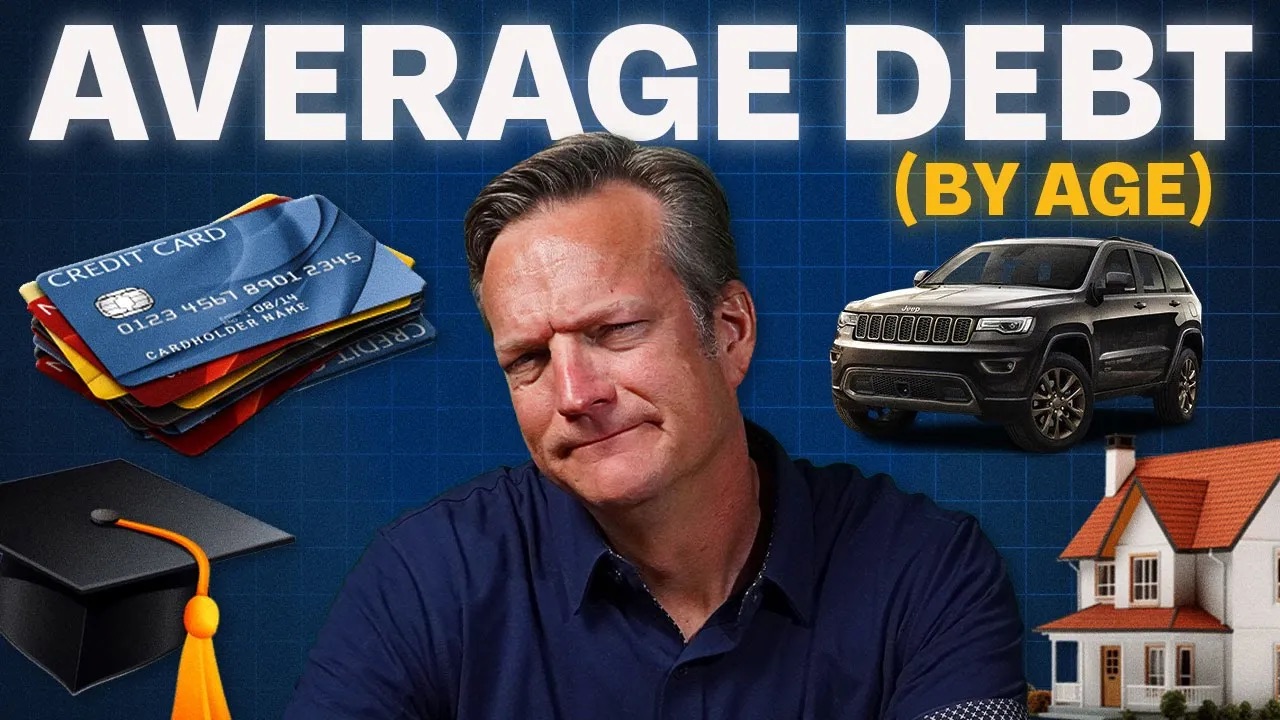Talked about people in the 50-plus era of their life. This is you know, if we're talking about how to become a millionaire, I think at this stage you are very aware that financial independence is on the horizon. So you need to go ahead and make sure you've been cleared to land the airplane of your financial life. Yeah, have you started flipping that mentality? And all of us like to think about financial independence, and we like to think about the thing that we're getting away from. No more commute, no more nine to five, no more boss, no more co-workers, no more fill in the blank. But if you really spent time thinking through what this next phase actually going to look like, how am I going to spend my time if I'm not working eight hours a day, five days a week? What do I do at that time? How am I going to fill it? What are my hobbies going to be? Am I sure I'm even going to enjoy those hobbies? I'm amazed at all the people who say, "Hey, you know what? I'm going to retire. I'm going to start playing all kinds of golf." And I always say, "Okay, well, great. Do you play golf now?" "No, no, never played around." I'm like, "Oh, maybe you want to kind of test drive this a little bit to make sure it's actually something that you want to do." So people say, "Oh, I want to travel. I want to see the world." Well, have you ever been on an international trip? "No, no, never done it." "Oh, maybe you want to make sure you actually understand what it is you're retiring to, not just what you're retiring from."
Well, also, everything you said there has a cost. Golf is not the cheapest thing in the world. Traveling, it's not the cheapest. So I want to make sure everybody is stress-testing their plan to the life that they want to live and make sure you're actually in a good place with that. We do this for all of our clients. We have several resources for you. You could go
"know your number" if you go to
learn.moneyguy.com, or you could get to the point because probably by your 50s, you are getting to the point where the resources are getting close to seven figures. It'd be nice if you could measure twice, cut once because you're on your first retirement. We've had many, many retirements. Let us help you kind of stress-test and make sure you're on solid ground with your process and plan. Now, another thing in your 50s, if you want to think about how to become a millionaire and how to stay a millionaire if you've done that, is you've got to have the awkward talks. You've got to have those talks that maybe aren't the most comfortable in the world to think about. And we think that this should go both ways. You want to have the awkward talks with your kids around, "Hey, we're aging, we're getting older. These are our wishes. This is our estate plan. We've actually sat down and met with someone, said, 'Hey, this is what we want to have happen with us for the rest of our life, and this is what we want to have happen to our money.'" And if you are the child, you have to have the awkward talk with your parents. Oh, come on, see, but now here's the thing. I set this up to be a fun little thing because nobody wants to talk about death, end of life, all that transition.
So, I tried because I actually resemble and am getting close to these ages. So, I said, "Hey, when we said awkward talks, I was picking and making fun of the fact that when you have young children who are now turning into, you know, you have to have the birds and the bees talk. You have to have the birds and the bees. That's an awkward talk. I was making a joke out of the fact that besides that awkward talk, you also have to have the awkward talk about what's the next stage of life. What do I have? What are expectations? You know what I mean? So, make sure the communication is going back and forth. Way to play it solemn instead of giving me the edge to have a little fun so we could take the edge off of an awkward conversation. Well, it's important because these are not easy conversations. These are not fun conversations, and it's difficult enough for us to think about having them with our children. It's also difficult to think about having them with our parents. But they matter. It's important to have those questions. "Hey, Mom, Dad, I'm not asking because I'm waiting for my inheritance. Hey, what do you need from me? Have you thought about this? Have you made these plans? Have you been thinking through these things?" Because the more well-thought-out the plan is, both ways, the more seamless and smooth the transition will be. It's always so heartbreaking when we see someone say, "Hey, you know, Mom and Dad, they were so private. They kept everything to themselves. And then something happened, and it came out of nowhere. We weren't expecting it, and we have no idea what's going on." Dad knew the finances, and he had everything figured out. He was great with money, but none of us have the road map. None of us know what his great plan was. That's a difficult thing for your loved ones to try to pick up the pieces on. So, if you can have those conversations, you're likely going to set up your family and your heirs for better success long-term. Yeah, and not to keep laboring the point, but also if there are any awkward, quirky things you're doing, like if you have all the family heirlooms in a closet, a jacket in the closet, a winter coat that never gets worn, please tell someone. And if you're hiding hundreds of thousands of dollars in the curtain rods in your house, don't be doing it. Please tell someone about that too, because we've actually seen this type of stuff. And that's why I would encourage you now, look, if you're in your 50s and you have a parent that's in their late 70s, early 80s, go ahead and have those conversations, just like Bo said. Because we have seen those types of things too, where if you're not questioning and asking things, you could see some really quirky things that are going on later in life. And then the other thing that you should recognize in your 50s, if you really want to be a millionaire, if you want to be a true financially independent millionaire, that should be a memory. It should be a thing of the past. I mean, you should even be thinking through, like if you have kids and they have student loans, that should kind of be on them, because, yeah, Brian, what is it you always say? You always say, "You cannot be financially independent if you are financially encumbered." Those two don't go together. Well, I mean, any type of debt is an obligation. It's an encumbrance, and you're trying to build financial independence. How can you say you are independent if you actually have something that's encumbering that freedom? So, this is why I say you're not truly financially independent unless you don't owe anybody any money. And that's where I struggle in this higher interest rate environment because, you know, I want to have my house completely paid off, but it's so hard with a two and a half percent mortgage rate. So, I'm now keeping the cash reserves, and then if rates ever go back down below, because I'm making like five percent on my cash, I will be walking away from all of my debt and saying goodbye forever.
Alright, let's talk about our millionaire math because in the 50s, this is literally spot-check land. So, if you are 50 and you've accumulated at least $351,000, that would suggest that at a conservative rate of return, you are likely on your way to millionaire status by the time you get to 65. By 55, you ought to have accumulated about $523,000, and by 59, if your goal is to be a millionaire by 65, you need to have almost $700,000 saved up. I still think that's incredible—$700,000 saved up by 59 can still turn into a million by 65. Just because you retire, just because you're approaching retirement, just because you cross that threshold into financial independence doesn't mean your money stops working. Your money can still work for you, and it can work for you for the next 20-30 years. It's just going to look a little bit different than what it was doing for your 20 and 30-year-old self.
This is an important thing, and I would encourage—I mean, we do have some free resources with "Are You on Track to Be a Millionaire?" You can go to moneyguy.com/resources. But if you are in your 50s, you're probably at the point where, I mean, we have our "Know Your Number" course and tool, of course. But I also think this is one you're probably really thinking about. Where am I with this retirement? Can I land the airplane? Can I stress test? Consider taking the relationship to the next level because it would be worth it. So you don't walk through this not knowing if this threshold is a healthy transition or if I really need to be playing catch-up and making some hard decisions.













